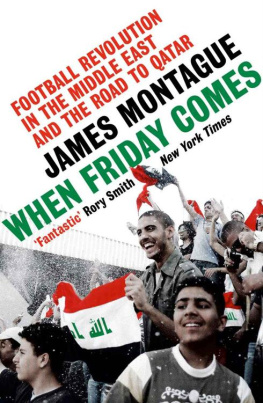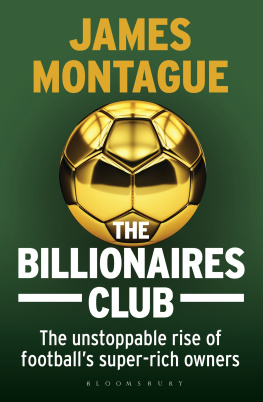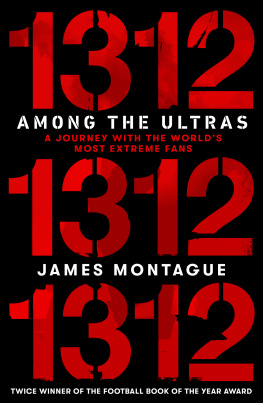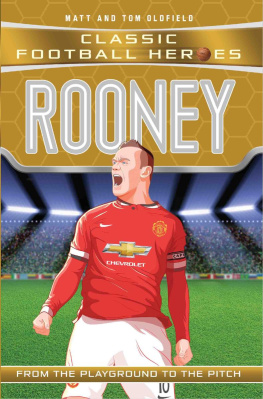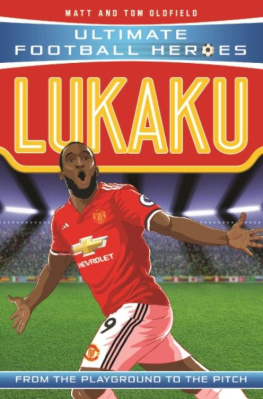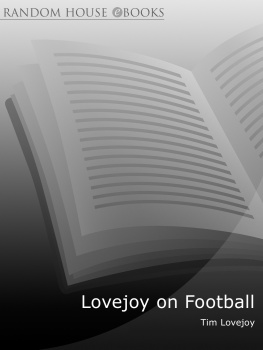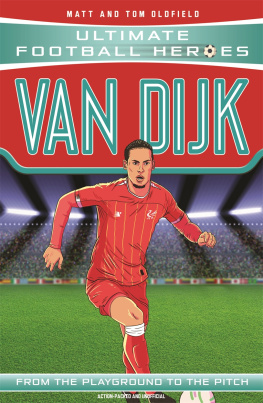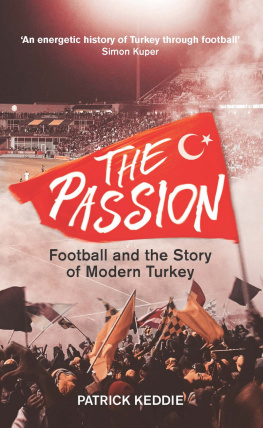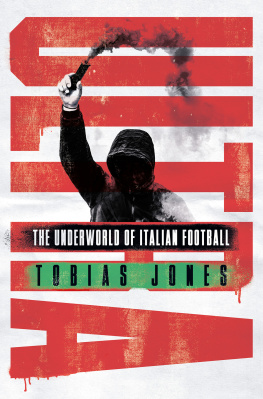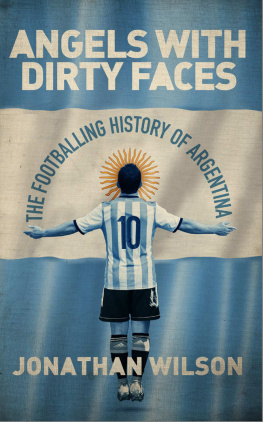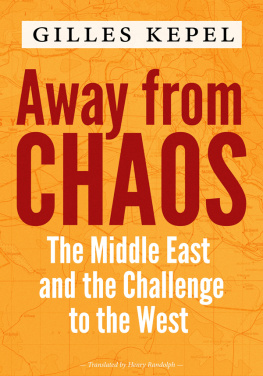
James Montague
WHEN FRIDAY COMES
Football revolution in the Middle East and the road to Qatar

Contents
About the Author
James Montague is an award-winning author and journalist from Chelmsford, Essex, who has reported from over 90 countries and unrecognised territories for the New York Times, CNN, BBC World Service, Bleacher Report and Delayed Gratification, among others. He is the author of four highly acclaimed books: Thirty One Nil, The Billionaires Club both of which won Football Book of the Year at the British Sports Book of the Year Awards 1312: Among the Ultras and When Friday Comes. He lives in Istanbul.
ALSO BY THE AUTHOR:
Thirty-One Nil
The Billionaires Club
1312
For Amr and the 74
After many years in which the world has afforded me many experiences, what I know most surely in the long run about morality and obligations, I owe to football.
Albert Camus
Authors Note
Back in 2004, when I first starting writing what would become When Friday Comes, I was a different person and the world was a different place. It was so long ago I used actual tapes in my Dictaphone. I had a film camera, not as some kind of retro fetish, but because digital cameras were the future. I could only send SMS from my Nokia. Facebook was still a pervy Hot or Not website at Harvard. And I was writing most of it out by hand, in notebooks. It was before the Arab Spring. Before Yemen and Syria were destroyed. Before ISIS. And before Qatar won the right to host the 2022 World Cup finals.
It was strange looking at those notebooks now and all the bus tickets and cigarette packets and political flags and obscure football shirts I collected along the way nearly two decades later. As much as I can see my naivety and flaws, those years spent intensively traveling the Middle East to watch football left a lifelong affinity with the region and its people. I wrote other books, but they would always somehow find their way back to the region; the attempts by the Lebanese and Palestinian national teams to qualify for Brazil 2014 in Thirty-One Nil; the story of the Gulfs super-rich football club owners in The Billionaires Club; the revolutionary ultras of Egypt, Morocco and Algeria in 1312. Somehow I could never forget the people I met and the places I visited whilst writing When Friday Comes.
When it came out in 2008 a book about Middle Eastern football was treated like an extreme niche, like an interest in Saxon pottery, or Soviet trains. But I decided to revisit and revise the book because so many people and teams I had met, and countries I had visited, had found themselves at the centre of world events and at the centre of the game. None more so than Qatar. In 2004, when I first went to Qatar, it felt like humans were more likely to colonise Mars before the Gulf would host a summer World Cup. But Qatar underwent an extraordinary transformation, whilst embroiled in controversy and a regional cold war, which I witnessed up close in real time.
There has perhaps never been a more controversial World Cup host. Qatar has been rightfully criticised for its human rights record, how it won the World Cup bid and especially its treatment of migrant workers. In 100 years from now, humans will looks back at kafala in Saudi Arabia, the UAE, Qatar and beyond as one of the great economic crimes of the twenty-first century. But that is only part of the story.
When Friday Comes is not an encyclopaedic history of football in the region, of the best players or the best goals. This book is made up of my experiences, some in my 20s, some in my 30s and some in my 40s, trying to watch football and understand the politics and culture of a place. A question I was often asked was why should Qatar be allowed to host a World Cup? Why should the Middle East, a region most people still stereotype as dangerous and unstable? If there was one thing I hope that When Friday Comes achieves, it is to show that the Middle East I witnessed is diverse, inspiring, full of contradictions but also full of hospitality and generosity of spirit. And that the Middle East has an obsessive love for football as deep and as profound as anywhere else on earth.
James Montague
stanbul, April 2022
Introduction
DUBAI, UNITED ARAB EMIRATES, JULY 2006
The shisha caf in the quiet, overlooked suburb of Hor al Anz in Dubai was the only sign of life on the street. It was late, past midnight, and the sticky humidity that always followed a searing Gulf summers day coated everyone, and everything, in a thin layer of perspiration. My bed was enticing me home, but I still felt the pull of unfinished business. The lone yellow light along the concrete row of shops and shawarma stands threw itself enticingly onto the pavement in front. A distant clatter of cups and raised male voices in a foreign tongue wafted over. It was an alien sound, and an alien surrounding, but also immediately recognisable. I instinctively moved towards the light.
Inside, the harsh glow from the strip lighting mixed with the fog-thick fug of sweet apple tobacco and strong, dark cigarettes. It stung the eyes momentarily until a few moments of blinking acclimatised you to the toxic atmosphere. It was standing room only, the space tightly packed together by white-robed Emiratis wearing the traditional kandura. More stood in any available place they could find. I inched along the back wall and, to my surprise, found a solitary seat overlooked by the crush. A young Pakistani boy worked the cracks in the crowd, emptying ashtrays and refilling tiny thimbles full of thick Turkish coffee as his Egyptian colleague darted around the chairs with his metal ladle of hot coals, replacing the dying embers from atop each customers billowing water pipe. The crowd was oblivious to their services. Tactics had to be discussed and players rated. All eyes were glued to the television in the corner of the room for the big match.
The appearance of white uniformity from the back of the room was a myth. Two tribes had emerged from Dubais darkness to watch their respective teams do battle. An invisible line had been drawn in the sand, the room divided. To the right, the supporters of France, to the left, Brazil. The only way to differentiate the two was the hastily hung flags in each corner. It was the 2006 World Cup quarter-final and neither side could contemplate going home saddled with defeat. Arguments started to break out between the sets of fans over who was truly the greatest player in the world: Ronaldinho or Zidane. One Emirati supporting France had to be pulled back by his friends, so incensed was he that the great Zidane had been defamed. And the match hadnt even started yet.
Fights, devotion and obsession over faraway players and footballing nations was something I had quickly got used to when I accidentally stumbled into Dubai nearly two years previously. I hadnt even known for sure where Dubai was on the map when the email arrived advertising a job on the citys Time Out magazine. Two weeks later I was stepping out of an air-conditioned arrivals lounge into a brick wall of humidity. It was August and a hot, moist air had emptied my lungs the moment I stepped out of the controlled environment of the airport. Dubai was noisy, brash and hellishly hot. I had seen many new arrivals to Dubai react in different ways upon arriving in such an unforgiving environment. Some flew back home in a matter of days. Some were driven slowly mad by the heat. Relationships crumbled, vices fed. Most stayed, but stuck to their own in expat communities, replicating the life they had enjoyed back home oblivious to their surroundings and refusing to mix with the locals to acclimatise.
Next page
